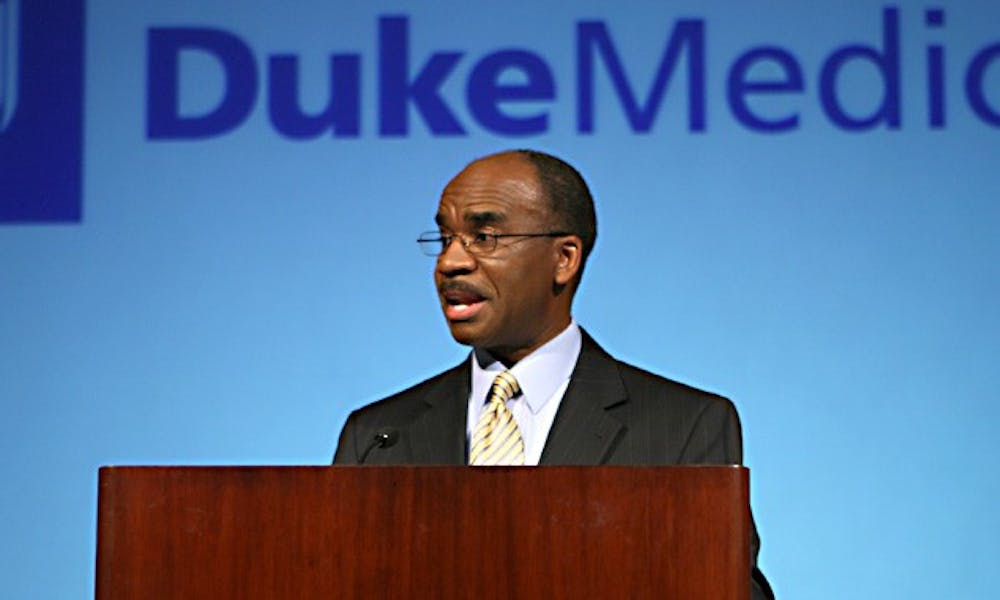Health care experts and policymakers from Duke, Durham and across the nation met Monday for the ninth annual Durham Health Summit.
The event, held at the Durham Marriott Convention Center downtown and titled “Many Minds, Many Hands, One Goal: A Healthy Durham,” focused on increasing collaboration between the Duke University Health System and the Durham community.
Dr. Victor Dzau, chancellor for health affairs and chief executive officer of Duke University Health System, served as chair of the summit. He said collaboration is absolutely vital to the goals of both Duke and the community.
“It is our responsibility to engage with each other to find solutions for health issues in Durham,” he said. “Only by doing this can we truly convert the ‘City of Medicine’ to the ‘City of Health.’”
The keynote speaker of the afternoon was U.S. Surgeon General Regina Benjamin, who was nominated by President Barack Obama in July 2009. She spoke briefly on her experiences in the health care field, both as a physician and a policymaker, and on some of the challenges she faces in her new role.
She also praised Duke and Durham for their efforts to work together on pressing health issues.
“What we’re trying to do on a national level is exactly what you’ve been doing here in Durham, and we applaud you for that,” Benjamin said. “Hopefully, we can learn a lot from what you’ve done.”
The struggling economy and the increasing rate of uninsured has made improving county-wide health more difficult, said Gayle Harris, director of Durham County public health. She said there still exist large racial disparities in health between blacks, whites and Latinos, and that 71 percent of Durham residents are overweight or obese.
Harris also provided some positive news. In the past year, she said, key statewide laws have been passed that provide comprehensive sexual health education to students and prohibit smoking in bars and restaurants.
Several presenters talked about Durham Health Innovations, a partnership between Duke and Durham County that is jointly funded by DUHS and the National Institutes of Health. It will fund the implementation of 10 innovative models of care to improve health outcomes in the community.
One of the main concerns raised about the Duke Health Innovations Program was the cost of the new proposals.
Some of the money will come in the form of federal grants that were included in the health reform bill signed into law last week, said Dr. Robert Califf, vice chancellor for clinical research and director of the Duke Translational Medicine Institute. He added that all agencies will have to become more efficient at what they do.
Randy Tucker, supervisor of an in-jail drug treatment program at the Criminal Justice Resource Center in Durham and a participant at the summit, said that bringing together different organizations and groups in Durham is vital not only to improving the health of the county but also to saving money.
“When you get this kind of broad community support for the health initiatives being proposed, and when these initiatives are carried out across the entire community, the changes can really pay for themselves,” he said.
Get The Chronicle straight to your inbox
Sign up for our weekly newsletter. Cancel at any time.

